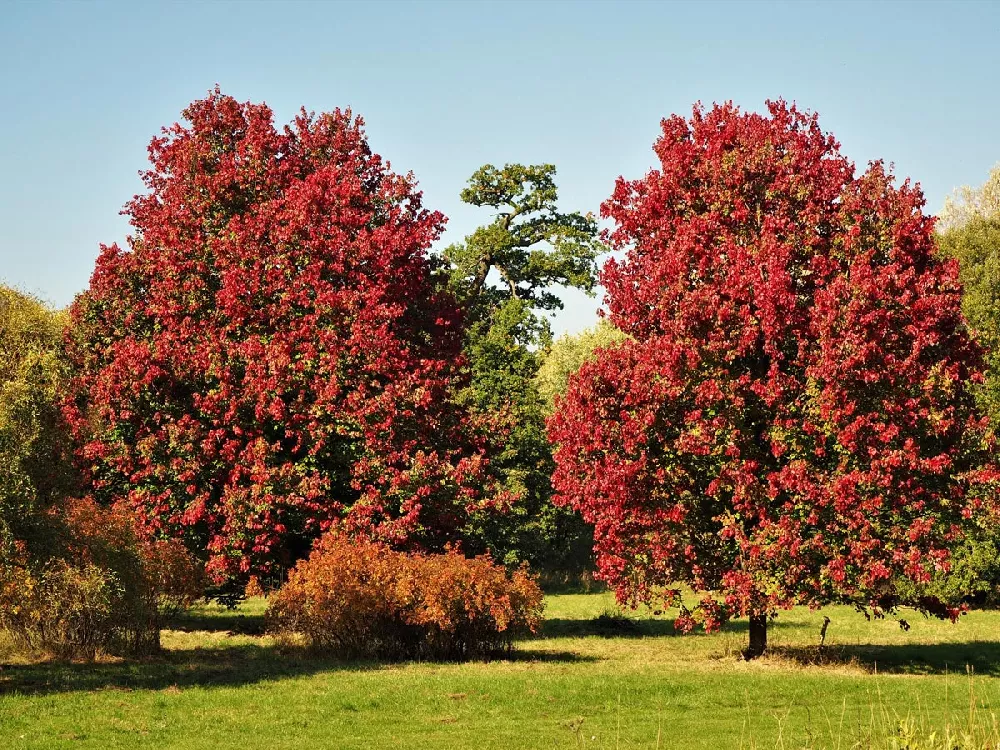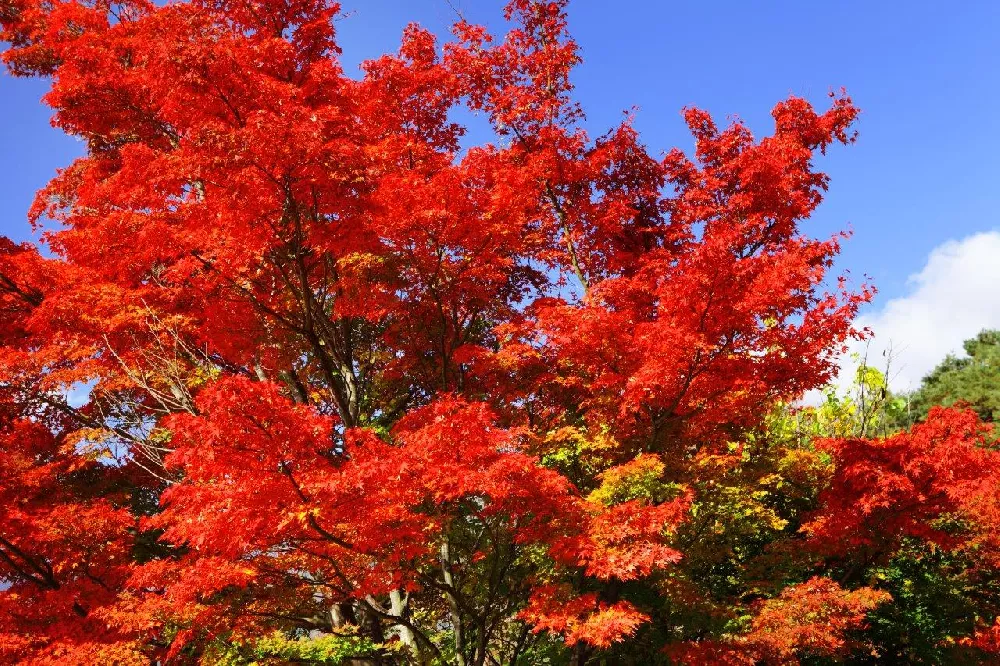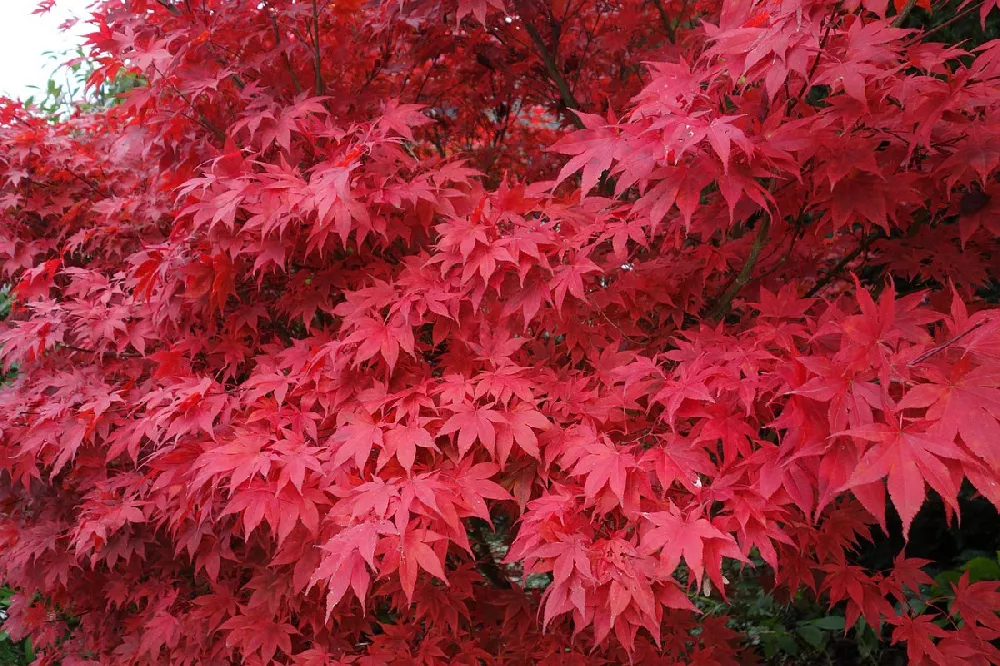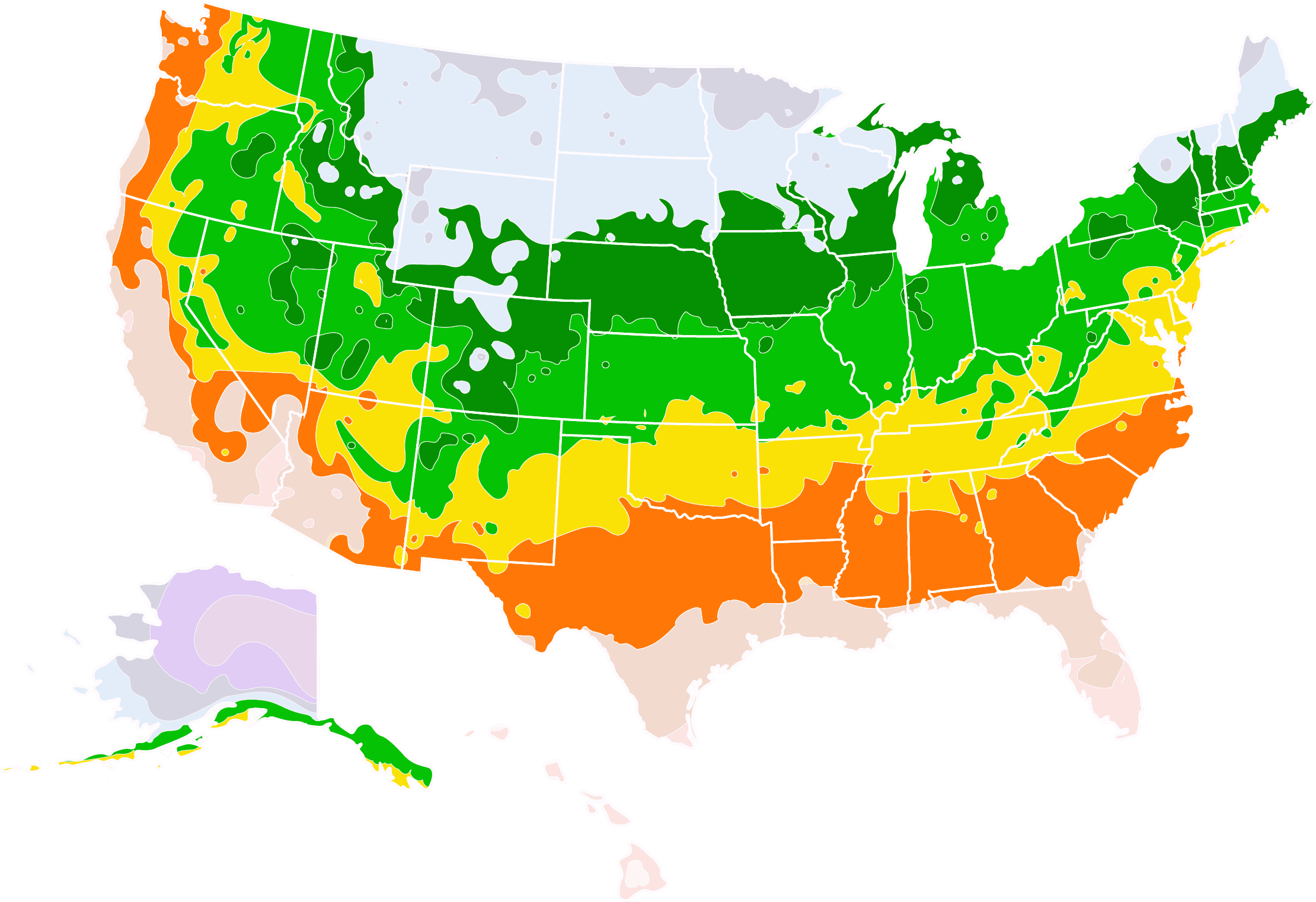- Home >
- Maple Trees >
- Emperor Japanese Maple Tree
Emperor Japanese Maple Tree for Sale - Buying & Growing Guide
- Ships in 1-2 days
- 1-Year Warranty Eligible
- Pots or accessories are not included unless specified in the product options.
Shipping Details:
Once your order is shipped, you’ll receive an email with a tracking number and estimated delivery date. Most orders ship immediately, but some items are seasonal and may only ship in spring or fall. These products are noted on the website.
While many Japanese maple trees are available in the nursery trade, the emperor Japanese maple tree is as good of an option as any other. This cultivar, known by the name Acer palmatum 'Wolff' EMPEROR I, has an upright form and can be single-stemmed or multi-stemmed. This plant's most impressive ornamental feature is its foliage, which is a bit darker than that of most Japanese maple trees and is nearly purple during the summer months. In fall, those leaves become even more impressive as they transform to a bright red or orange color.
- The emperor Japanese maple tree has dark, nearly purple foliage during the growing season.
- Its upright growing habits can be single or multi-stemmed.
- It is a bit more cold-hardy than other Japanese maples.
Plant Care
Sunlight

The emperor Japanese maple tree survives in full sunlight, but partial shade is ideal.
Watering
Water about once per week during the growing season. Water multiple times per week during establishment.
Fertilizing

Fertilize in early spring with a fertilizer that is relatively low in nitrogen.
Planting and Care
Planting instructions
The emperor Japanese maple tree grows from zone 5 through zone 9 and performs best in partial shade, but it can tolerate full sunlight, especially in the cooler parts of its growing range. Ideally, the soil in your growing location should have plenty of organic nutrients, have good drainage, and be somewhat acidic. Plant your tree in a hole that is deep enough to keep the tree’s root flare at or just above the soil line. Then apply a layer of organic mulch to help the soil maintain the moisture your plant needs.
Watering and nutrients
After you plant your emperor Japanese maple, you should supply water about twice per week or more. Your main goal at this stage is to keep the soil consistently moist to encourage the roots to establish themselves in their new growing location. After your tree is established, you can water it about once per week. Your emperor Japanese maple tree will benefit from a single feeding in early spring. What’s most important when choosing fertilizer is avoiding fertilizers that are high in nitrogen; they can cause rapid and weak growth in a Japanese maple.
Pollination
The emperor Japanese maple tree is a self-pollinating tree species that blooms in the spring. During that bloom time, the flowers will attract flying insects that are responsible for spreading the pollen from flower to flower to allow for fruit development. When pollination is successful, your emperor Japanese maple tree will produce a set of winged samaras. While these fruits can be interesting to look at, their ornamental value is relatively low, and their edible value is non-existent, which is why pollination is not all that important when growing this tree.
Pruning
Pruning for an emperor Japanese maple or any Japanese maple tree should be minimal, especially when the tree is young. Excessive pruning can cause the tree to produce new growth quickly, which often becomes weak and unattractive. Still, some pruning will be beneficial for this tree. Typically, you should remove any part of the tree that is dead or diseased. For the emperor Japanese maple, it’s also a good idea to thin the canopy a bit — this tree is a bit more compact than other Japanese maples.
Pests, diseases, and animals
The emperor Japanese maple tree has decent pest and disease resistance, but that does not mean it is immune from such complications. Wilt, canker, and leaf spots can all arise in this tree, as can root rot and botrytis. Insects can also harm your emperor Japanese maple tree. The most common pests that will arrive are mites, weevils, and Japanese beetles. Occasionally, this acid-loving plant may also experience chlorosis when the soil pH gets too high.
Achieving maximum results
One advantage of the emperor Japanese maple tree is that it puts out its leaves a bit later than other Japanese maple varieties. This characteristic can make this variety a bit less susceptible to late winter frost damage. The leaves of this tree also tend to hold their best color in a partial shade growing location. Not only does full sunlight mute the foliage color, but it can also lead to leaf scorch in the hotter parts of this tree’s growing range.
FAQs
What makes the emperor Japanese maple tree stand out from other Japanese maples?
Why are my emperor Japanese maple's leaves the wrong color?
Several conditions may cause your emperor Japanese maple tree's leaves to become discolored. One of the most common causes is too much sunlight, which can prevent the foliage from achieving its dark color. Lighter, yellowing leaves are often the result of a soil pH that is too high, while other forms of leaf discoloration are likely the result of poor care or improper growing conditions.
What is the mature size of an emperor Japanese maple?
While nearly all Japanese maple tree varieties grow to be small to mid-sized trees, the emperor Japanese maple tree is relatively small even compared to those related species. While most popular varieties end up being around 20 to 30 feet in height and spread, the emperor Japanese maple typically tops out at about 15 feet tall. The mature spread of this tree will be similar, at about 10 to 15 feet wide.
Compare Similar Products
You can't add more Product Name - Product size to the cart.
OK









